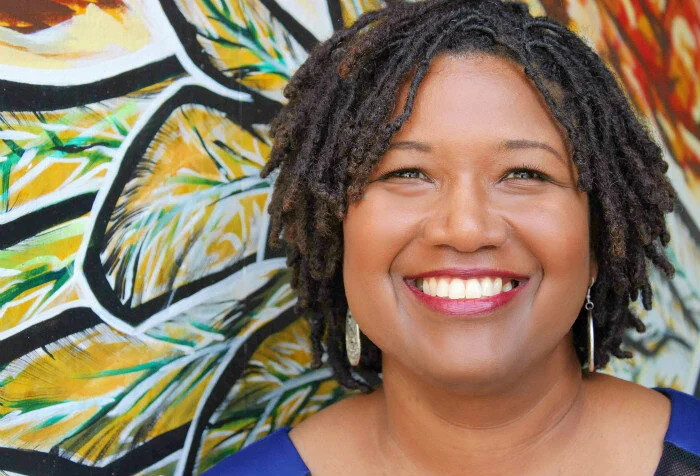Review: Tamara Harris Sets The Record Straight in “The Sisters Are Alright”
By: Deborah Harris
When I came across The Sister Are Alright: Changing the Broken Narrative of Black Women in America, I was thrilled to find a book that, according to many reviews, challenged long-held stereotypes about Black women. I, needless to say, was there and ready for the literary journey. As I delved into the book, I found much of what I expected…. and hoped to read.
Tamara Winfrey Harris
The author, Tamara Winfrey Harris, was punching long-held beliefs about Black women right in the face. Through the everyday experiences of Black women, Harris tells our stories from our lens. She paints the picture of the single Black woman who, contrary to mainstream conservative beliefs, is not the promiscuous, uneducated, welfare-dependent mom always looking for hand out. She illuminates the Black women who are single moms by choice, through divorce, widowed, and other reasons beyond their control.
Harris writes about the single and married Black women who are dedicated and nurturing mothers, well educated, hard-working employees, and valuable contributors to their community. She addresses the “angry Black woman” stereotype and gives us permission to be human. She submits that we have a right to be upset when we are mistreated, the right to cry when we are upset, and the right to be our true selves at home and in the workplace.
In one of my favorite lines of the book, Harris writes, “When they confront race and gender stereotypes, Black women are in a crooked room, and they have to figure out which way is up. Bombarded with warped images of their humanity, some Black women tilt and bend themselves to fit the distortion.”
Harris also dedicates quite a few pages of her book discussing Black women’s hair and skin tones. She refers to the negative messages many Black women received growing up, even within their own communities. Harris shares how phrases like “pretty for a Black girl” and “she’s got good hair” damages the self-esteem of many young African American women. I love that Harris later challenges those old beliefs with today’s natural hair revolution and more expansive definition of beauty inclusive of much darker skin tones.
Harris does a good job explaining how African American women are often viewed differently than their white peers in similar scenarios. She reiterates the words of a commenter from the magazine Jezebel who characterized R&B/Hip-Hop performer Beyoncé’s Super Bowl XLVII performance as “Lip service for female fans, and fan service for the guys.” Harris adds in contrast that Pop/Disco performer Madonna, who is known for nudity, BDSM, and Marilyn Monroe fetishizing performances, is characterized as a feminist provocateur pushing the boundaries of acceptable feminism.
I did find that toward the middle of the book Harris’ references and examples of bias against African American women became a bit redundant. I choose to believe that perhaps that was intentional, as research shows that African American women are some of the most physically and verbally abused individuals on the planet. The book does pick up steam toward the end as Harris recounts the stories of African American women who have been triumphant in the face of injustice and have defiantly debunked many long-held racist beliefs about their sexuality, desirability, and intelligence.
For me, The Sisters Are Alright reads like a modern-day book of liberation and license for African American Women to be their true selves regardless of the acceptance and the comfort level of today’s society. As Harris states in her closing chapter: “What’s wrong with Black Women? Simple Answer: Not a Da** ed thing.”
The Sisters Are Alright: Changing the Broken Narrative of Black Women in America.
2015. Berrett-Koehler Publishers: 168 PAGES. Paperback $ 14.68
Author of the children’s book series “Amari’s Great Adventures” and U.S. Army veteran, Deborah Delois Harris is one of a growing number of Black authors writing books that are culturally representative of African Americans and their diverse background. An avid reader since childhood, Deborah’s literary goals are to increase the number and quality of books written by and about People of Color, support organizations focused on increasing access to books for underserved communities, and put a spotlight on literary works by known and unknown Authors of Color.








